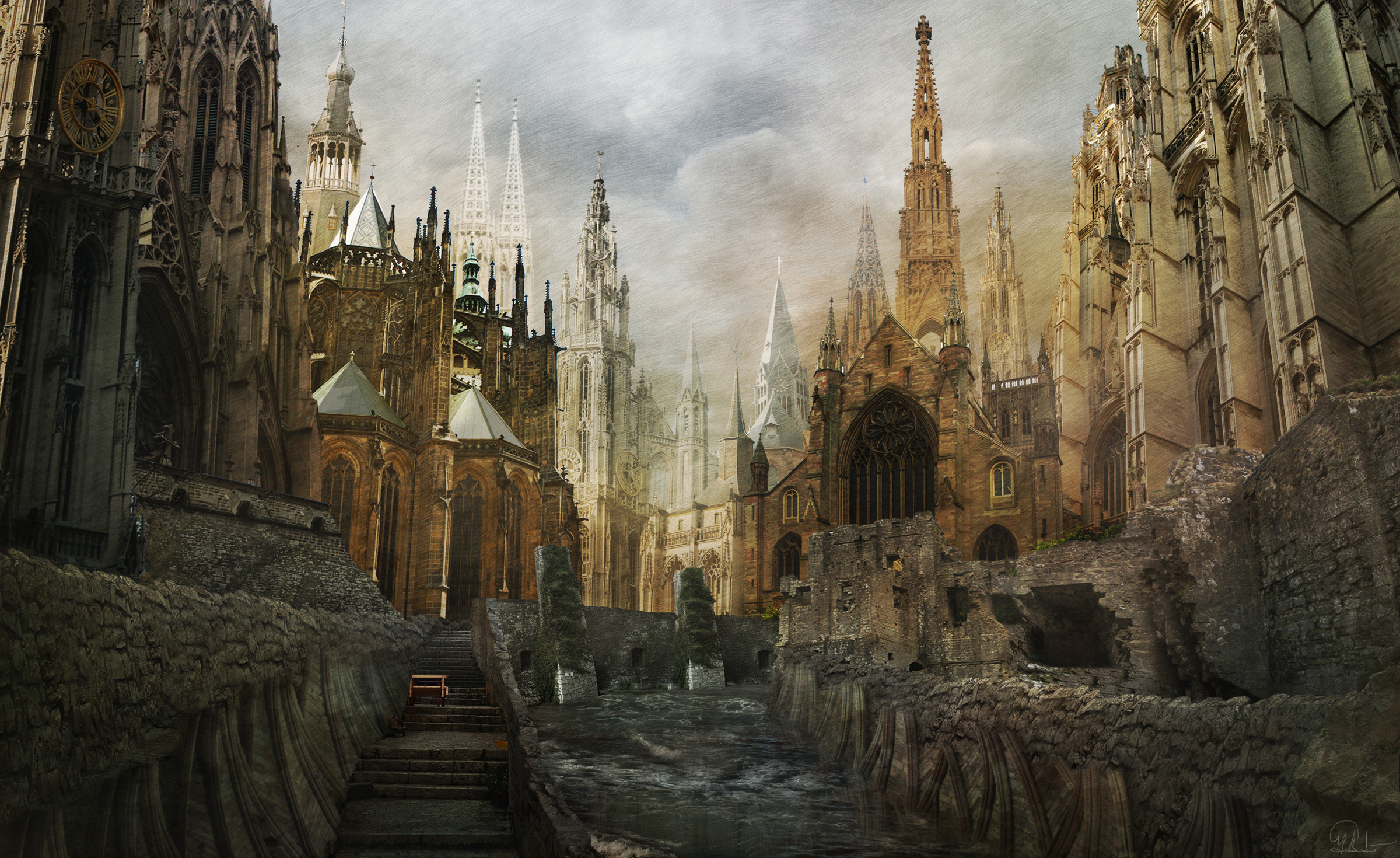The upper classes have access to more meat. Goat and giant spider are preferred, but chicken is more common due to relative ease of containment. Meat is frequently given multiple layers of preparation, first boiling and then frying or roasting. When holding feasts or eating ostentatiously, wizards are hired for more elaborate meals.
As a general rule, everyone eats only one full meal a day; though this isn't to say no food passes their lips outside of supper. Especially of the lower class, something small, quick, and portable is usually consumed earlier in the day; something like bread & cheese or a pie.
Volaire is situated in the middle of the ice rings of Mondria, and the ice shards cleared out around the asteroid city have been concentrated into a handful of spots to be melted and become floating lakes. These bubbles of water allow for easily maintained fish farms, subsequently leading to seafood being commonly available to all classes of Volaire.
As a trade port for numerous worlds, the culinarians of Volaire have exceptional access to spices. This leads to the residents frequently developing a very multicutural taste, and it is through Volaire that many cooking styles are then introduced to the greater Mondrian system.
Caterina the Muncheon Minotaur
Standing on a crate behind her stall (platform shoes are common with women, but typically not an option for the hooved races), with a two-layer gown to cover it, Caterina is a spotted brown & white minotaur who is difficult to miss at the docks. Her soft-spoken nature is no hindrance to sales, as her presence and local reputation is more than sufficient. She sells two types of pies; a basic one of cheese & honey, and a more expensive peppered meat pie, the meat being whatever's available earlier that day, purified tapestry whale being one of the more common options.







